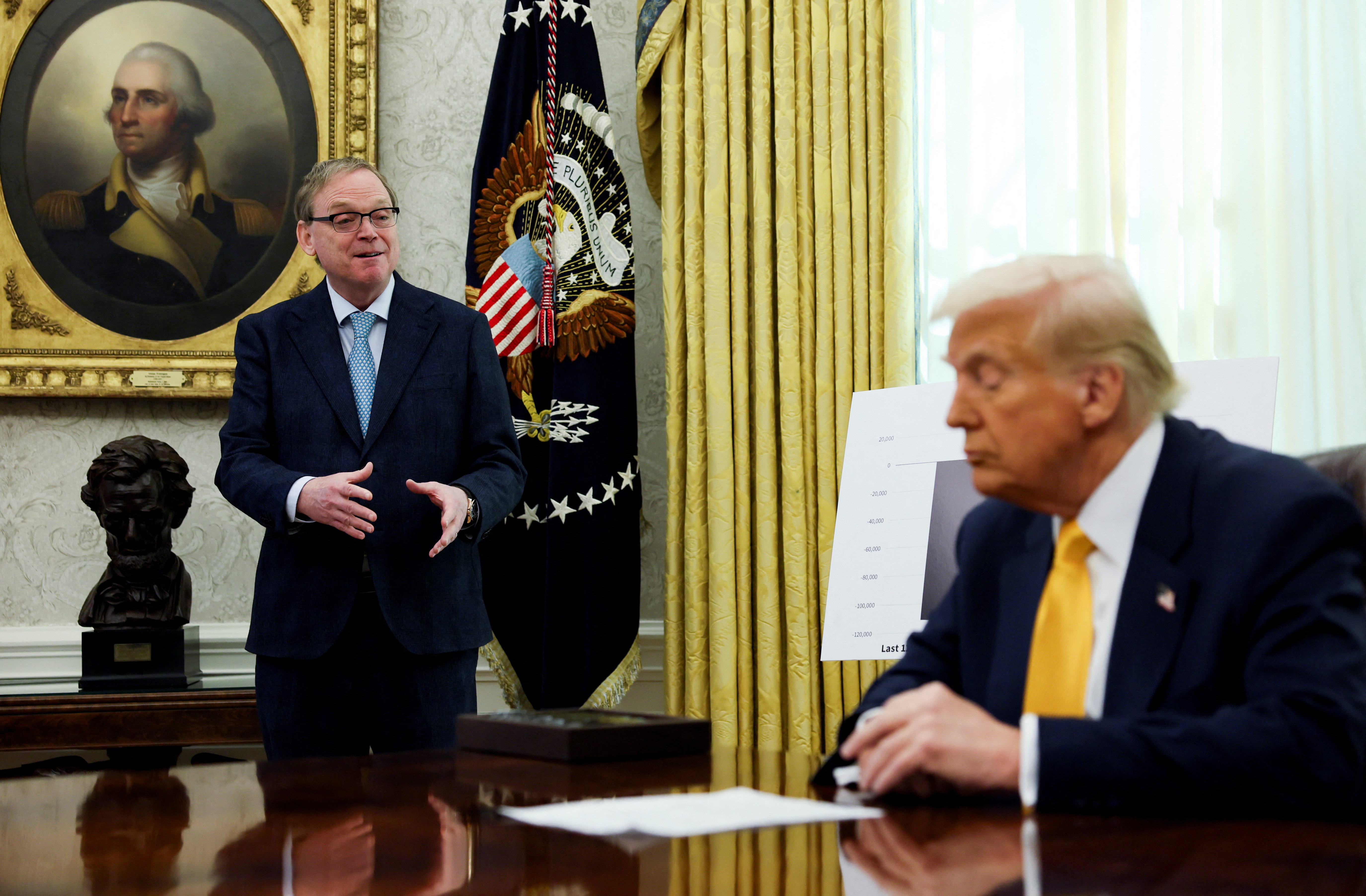Wall Street has braced for significant losses at the start of the week over Donald Trump's punishing tariffs on exports to the United States, as oil prices plummeted even with countries seeking compromise.
The Republican has remained defiant since unleashing the blitz of tariffs on stunned nations around the world on Wednesday, insisting that his policies "will never change" even as markets went into a tailspin.
Investors had been anticipating another week of turbulence as global trading partners react to the harsher-than-expected tariffs. US S&P 500 E-minis stock futures were last down 4 percent. Dow E-minis were down 3.8 percent, while Nasdaq 100 E-minis were down 4.6 percent at the open on Sunday.
Nikkei futures slid almost 4 percent to 31,080, pointing to a drop of up to 3,000 points for the cash index that closed at 33,780 on Friday.
"The bull market is dead," Mark Malek, chief investment officer at Siebert Financial, said ahead of futures opening. "We might see some gains in the next few days, but for now, they're not going to be sustainable."
The timing of the tariffs news, which coincided with the beginning of the first-quarter earnings season, is contributing to the gloomy outlook, Malek said.
Trump said on Sunday he can't say what happens to markets, adding that he will speak with Israel's Prime Minister Benjamin Netanyahu on levies during the latter's visit to Washington.
Britain's Prime Minister Keir Starmer, on the other hand, warned in a newspaper op-ed that "the world as we knew it has gone," saying the status quo would increasingly hinge on "deals and alliances."

Savvy repositioning
On Sunday morning talk shows, Trump's top economic advisers sought to portray the tariffs as a savvy repositioning. Treasury Secretary Scott Bessent said on NBC News' "Meet the Press" that there was "no reason" to anticipate a recession.
Some traders believe the stock market will at least attempt to stage a comeback of sorts.
"Sometime this week, it's probably inevitable that we will have an up day," said Steve Sosnick, chief investment strategist at Interactive Brokers, ahead of futures opening.
The question remains about the sustainability of any rally.
"We may see a day this week where screens are green, but any lasting rally may not arrive for three or four weeks," said Alex Morris, chief investment officer at F/m Investments. "At that point, people will start saying we’ve taken enough air out of the balloon."















